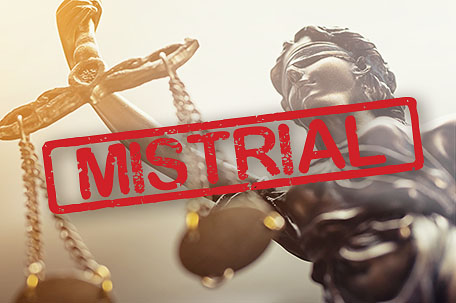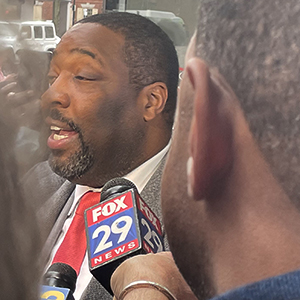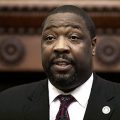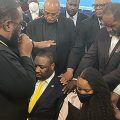
After three weeks of testimony and 25 hours of deliberations, a mistrial was declared in the trial of Councilmember Kenyatta Johnson.
By Denise Clay-Murray
For the last three weeks, Philadelphians in general — and Philadelphians in City Council’s Second District in particular — have kept their eyes trained on the James A. Byrne Federal Courthouse on Market Street.
They were waiting for a verdict in the bribery and honest services wire fraud trial of City Councilman Kenyatta Johnson, his wife, consultant Dawn Chavous and former Universal Companies CEO and CFO Rahim Islam and Shahied Dewan. After a three-week trial, the jury in the case was sent to deliberate last week.
On Tuesday, the jury’s inability to make a decision in the case led to Judge Gerald McHugh’s decision to declare a mistrial.
After 25 hours of deliberation, several notes sent to the judge requesting clarification on various issues, and lots and lots of discussion, the foreperson sent McHugh a note saying that the group of eight men and four women had reached an impasse.
“We are unable to unanimously come to an agreement,” according to the note. “Individuals from both sides do not believe that any additional evidence will change their minds.”
The judge decided that asking the jury to continue deliberating in light of that would be punitive.
“I have a concern that it might be coercive [for the jury] to continue debating,” he said. “Given my observation of the jury, I am concerned that we have taxed them as much as we can.”
McHugh thanked the jury for its service and let them know that their service was appreciated despite not being able to render a verdict.
Johnson briefly spoke to reporters following the decision. He thanked his supporters for their prayers and said he was ready to get back to work. He was expected to be present at Thursday’s City Council meeting and will also be attending the rest of the city’s budget hearings, Johnson’s spokesman, Vincent Thompson, said.
“I’m eager to continue fighting on behalf of the residents that I represent in the Second Councilmanic District,” Johnson said.
Had the trial ended with Johnson’s conviction, he would have been required to resign his office before his sentencing. He would have also had to forfeit his city pension and his conviction would have kept him from holding public office again.
Assistant U.S. Attorneys Thomas Gibson and Mark Dubnoff declined to comment after the decision was announced, but sources say that the government is dedicated to retrying Johnson, Chavous, Islam and Dewan.

The government alleges the four put together a scheme designed help Universal keep a group of dilapidated South Philadelphia properties from being reclaimed by the Philadelphia Redevelopment Authority by bribing Johnson and using a $66,750 “low-show” contract for Chavous as the means for payment.
To prove its case, the government relied on a collection of largely circumstantial evidence that it presented in a very document heavy way. Of the 10 government witnesses put on the stand, the one the jury heard from the most was lead FBI Case Agent Richard Haag.
The agent described a six-year investigative process that included interviews with 150 witnesses, Grand Jury subpoenas, surveillance, and search warrants. That trail led to
a paper trail of bank records, invoices, credit card bills, Universal board meeting minutes, and other documents.
But what it didn’t include was any audio or video evidence of wrongdoing, or witnesses that can directly connect Johnson and Chavous to any wrongdoing.
And it’s for that reason that the government should rethink its decision to retry the case, Johnson’s attorney Pat Egan said. If this was the best evidence that the government could come up with after six years of investigation, it might be time to reconsider, he said.
“The issue in this case was that there was no evidence,” Egan said. “Fortunately, some of the jurors obviously saw it that was as well. We believe that won’t change because there is no evidence. My client did nothing wrong.”
Another reason that the government may be so dedicated to retrying this case is because it only represented two counts of a 22-count indictment. The other 20 counts, which include racketeering, and embezzlement, focus on not only Universal’s dealings in Philadelphia, but also the company’s dealings in Milwaukee. The original plan was for the jury to hear both cases. A new jury will have to be selected to hear both cases for the retrial.
There is no word on when the retrial will be held.
















Leave a Comment